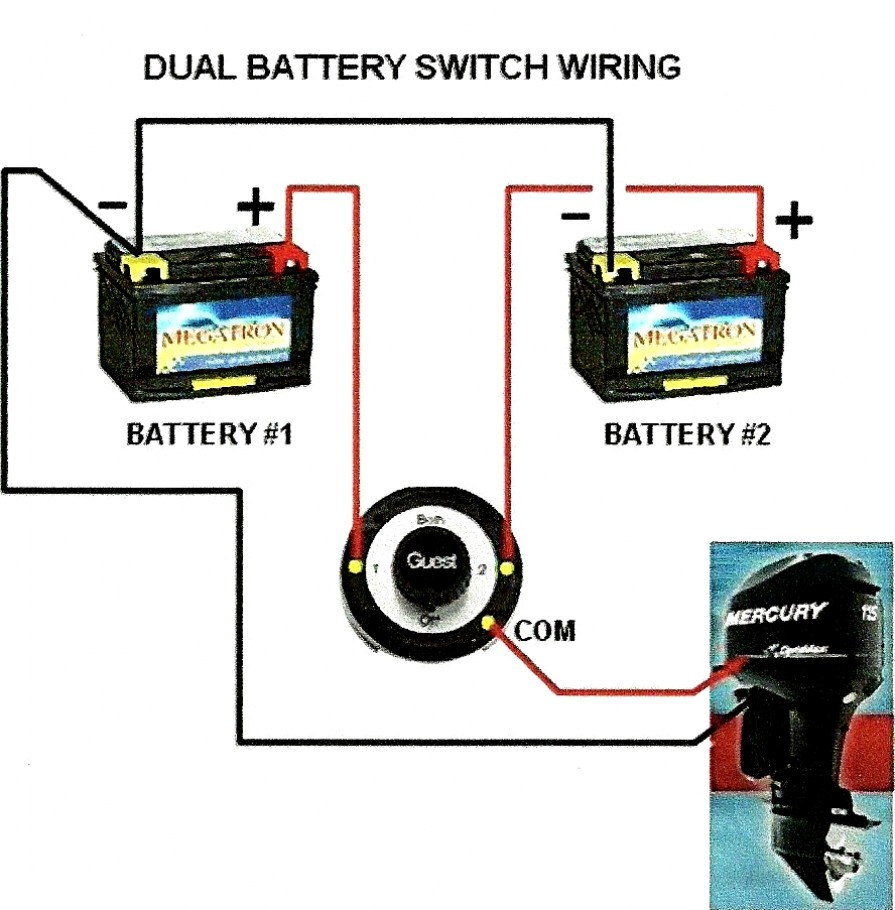Double Your Power: Unlocking the Secrets of Marine Battery Switches

Ever been stranded at sea with a dead battery? It's a sailor's nightmare. But fear not, intrepid mariners! The humble marine two-battery selector switch is here to save the day (and your voyage). These little powerhouses are the unsung heroes of countless boating adventures, quietly orchestrating the flow of electricity to keep your vessel humming.
Imagine this: you're miles offshore, the sun setting, and your engine sputters to a halt. With a dual battery setup and a selector switch, you can effortlessly switch to your backup battery and get back on course. This seemingly simple device offers a critical layer of redundancy and power management crucial for any boat owner.
These switches aren’t newfangled gadgets. They've been around for decades, evolving from simple rotary switches to sophisticated electronically controlled systems. Their core function remains the same: to control which battery, or combination of batteries, powers your boat's electrical systems. Early systems were purely mechanical, but modern versions often incorporate additional features like battery isolation and emergency paralleling.
The primary challenge these switches address is preventing the complete discharge of your starting battery. By isolating your starting battery for dedicated engine starting, you ensure you'll always have the juice to fire up your engine. This is particularly critical in situations like anchoring overnight, when onboard electronics can drain a battery without you realizing it.
So, how does this electrical wizardry work? A marine two-battery selector switch typically offers several positions: "OFF," which disconnects all batteries; "1," which connects only battery one; "2," which connects only battery two; and "BOTH," which combines both batteries for charging or increased power demands. Some switches also have a "COMBINE" setting, designed for emergency starting situations where both batteries are connected in parallel to provide maximum cranking amps.
One of the key advantages of a dual battery system with a selector switch is enhanced safety. A dedicated starting battery ensures you’ll always be able to start your engine in an emergency. This is particularly important in offshore situations or when navigating unfamiliar waters.
Another benefit is extended battery life. By cycling between batteries and avoiding deep discharges, you can significantly prolong the lifespan of your marine batteries, saving you money and hassle in the long run.
Finally, a dual battery system provides greater power availability. With the "BOTH" setting, you can draw power from both batteries for high-demand appliances or when running multiple electronics simultaneously.
Choosing the right marine dual battery switch is critical. Consider the size of your batteries, the electrical demands of your boat, and the type of switch (manual or automatic). Consult with a qualified marine electrician for guidance.
A basic checklist for installation: appropriate gauge wiring, properly sized fuses or circuit breakers, and a secure mounting location.
Best practices include regularly inspecting the switch for corrosion or damage, periodically cleaning the terminals, and avoiding leaving the switch in the "BOTH" position for extended periods.
Advantages and Disadvantages of a Marine 2 Battery Selector Switch
| Advantages | Disadvantages |
|---|---|
| Prevents dead starting batteries | Can be complex to install |
| Extends battery life | Requires additional wiring and components |
| Increased power availability | Potential for human error (leaving switch in incorrect position) |
Frequently Asked Questions:
Q: How do I choose the right switch? A: Consult with a marine electrician to determine the correct amperage rating and type.
Q: Can I install it myself? A: While possible, professional installation is recommended.
Q: What maintenance is required? A: Regularly inspect and clean the terminals.
Q: What is the difference between a manual and automatic switch? A: Manual switches require user input, while automatic switches manage battery charging and selection automatically.
Q: What is the “COMBINE” setting for? A: For emergency starting only, as it connects both batteries in parallel.
Q: What gauge wire should I use? A: Consult your switch manufacturer’s recommendations and your boat’s wiring diagram.
Q: What happens if I leave the switch in the "BOTH" position? A: It can lead to uneven charging and potential battery damage over time.
Q: Where should I install the switch? A: In a dry, accessible location, preferably close to the batteries.
Tips and Tricks: Label your batteries clearly and consider adding a battery monitor to track their status.
In conclusion, the marine two-battery selector switch is a vital piece of equipment for any boat owner seeking peace of mind and reliable power management. From preventing dead batteries to extending battery life, these unassuming switches play a crucial role in keeping your boat running smoothly and safely. Understanding how they work, how to install them, and how to maintain them is essential for any responsible boater. Investing in a quality marine dual battery switch and adhering to best practices will ensure countless hours of trouble-free boating, allowing you to focus on what truly matters: enjoying your time on the water. Don’t leave your next voyage to chance; equip your vessel with the power of a marine two-battery selector switch and sail with confidence.
Behr blue opal paint a deep dive into iridescent charm
Acura integra type r colors iconic shades through the years
Honda cr v lug nut torque spec everything you need to know













